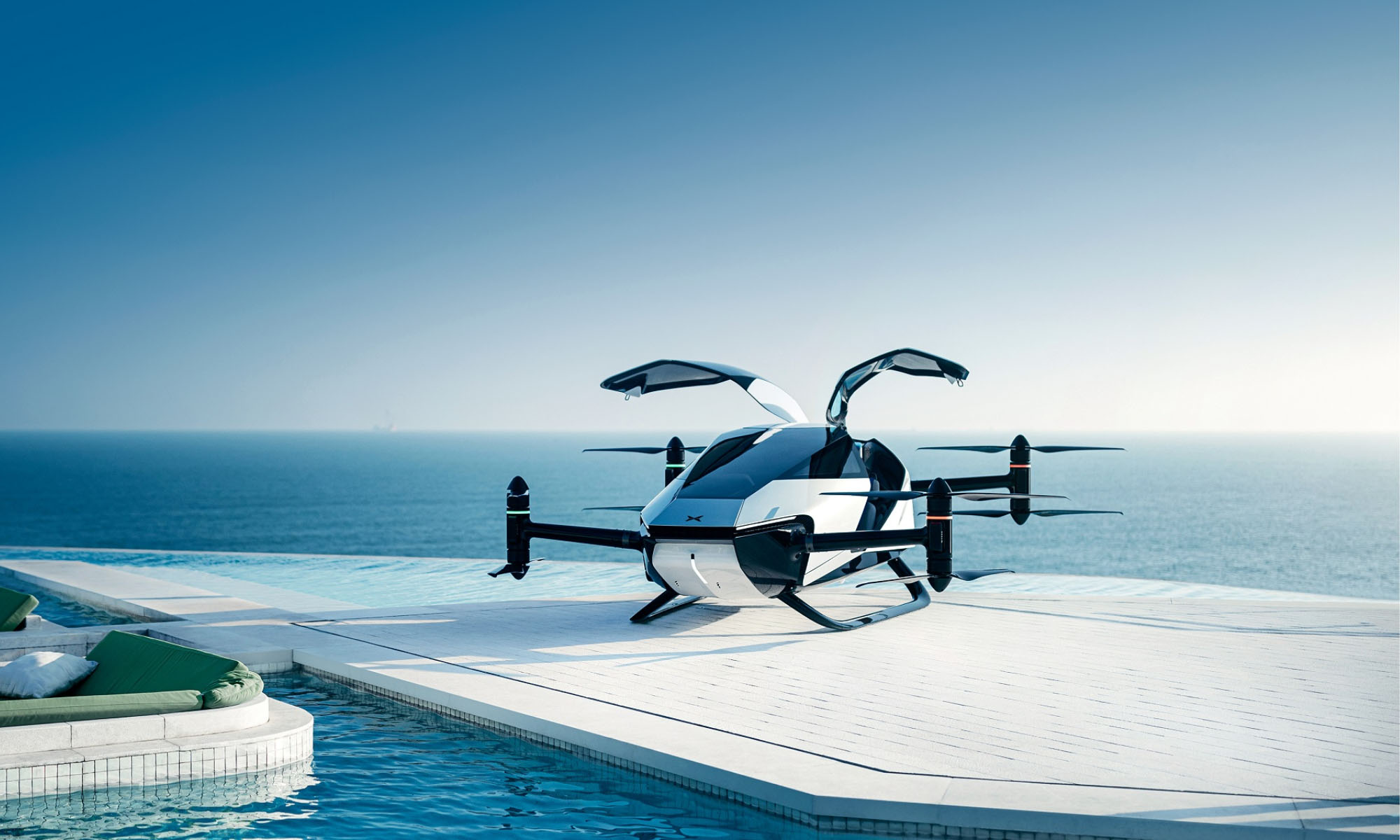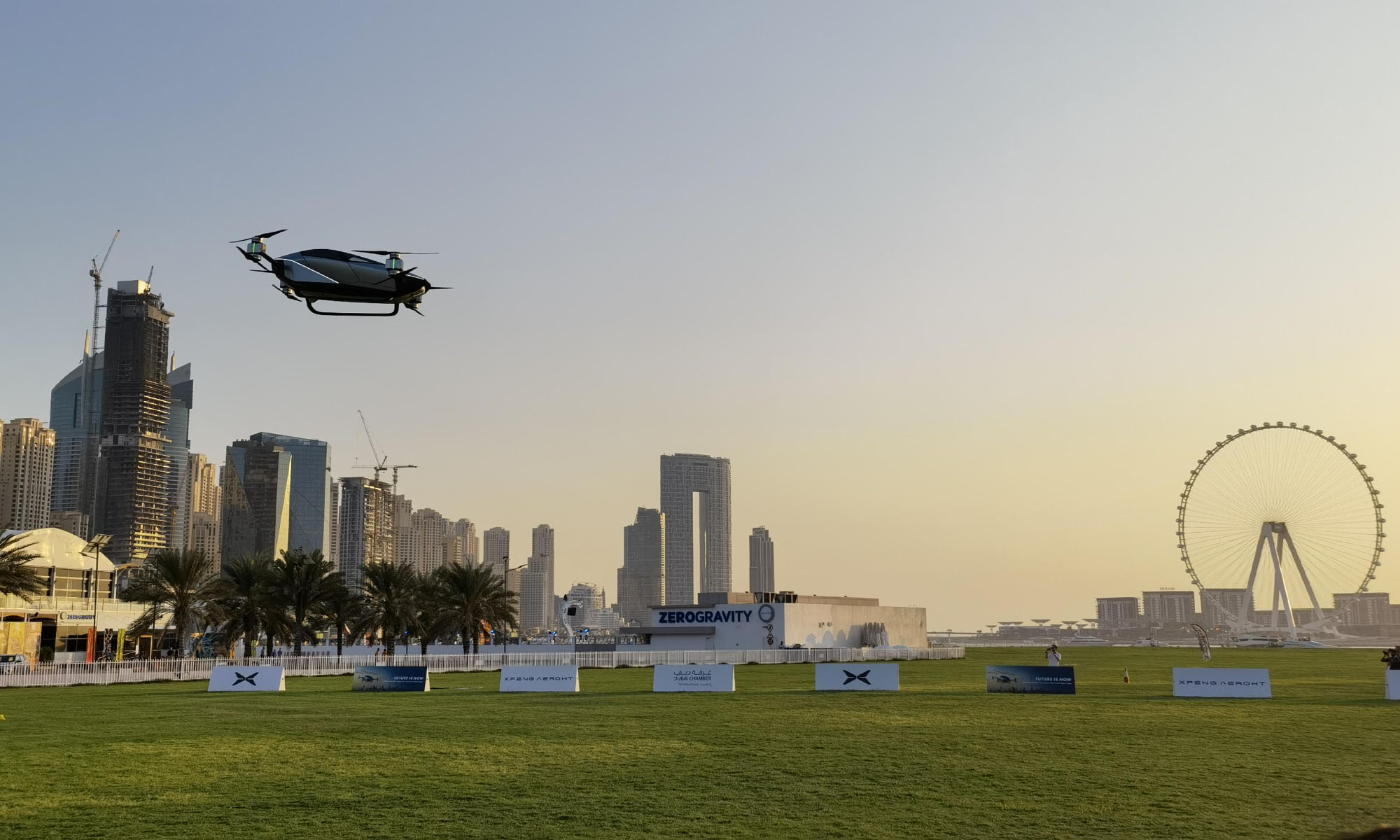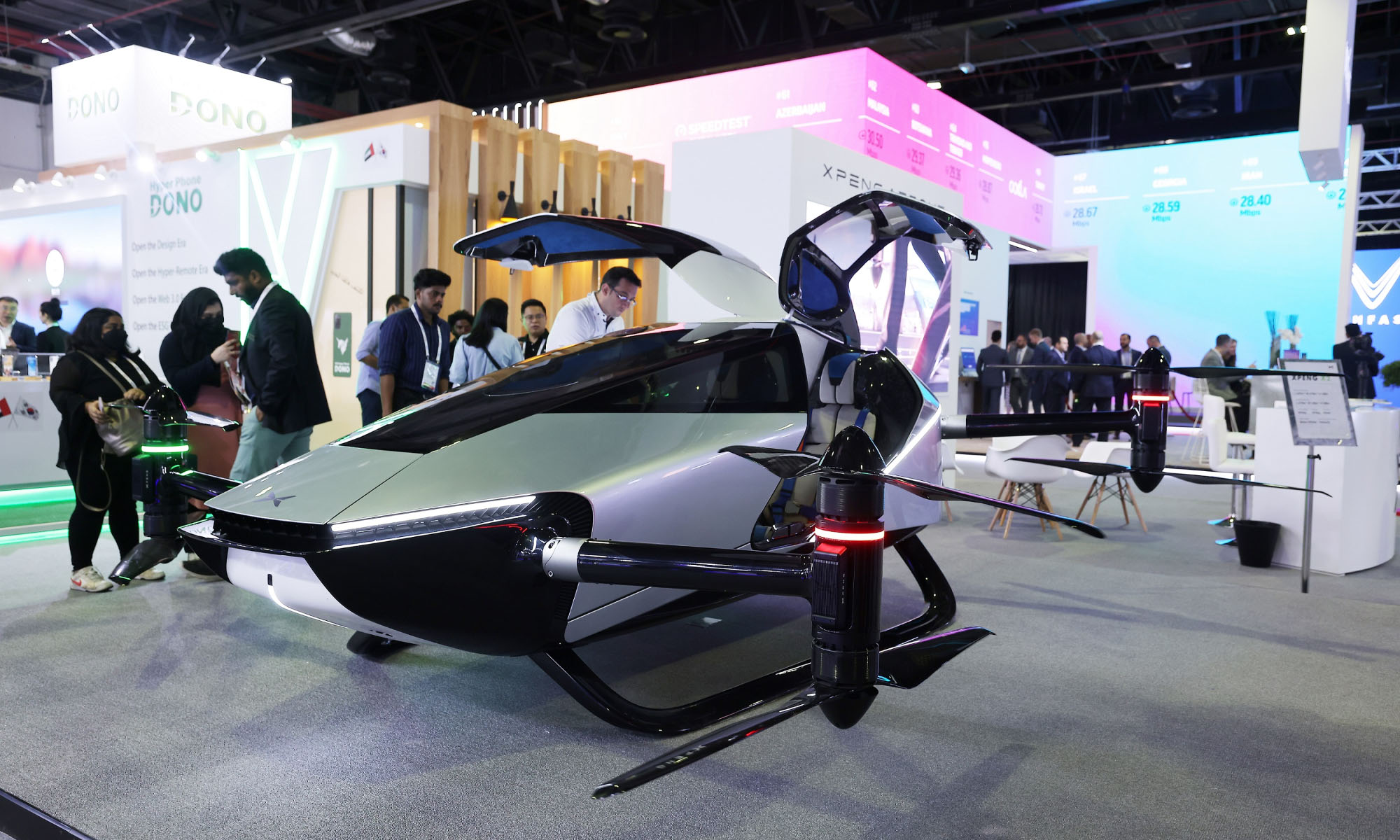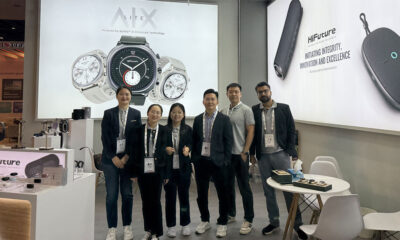News
eVTOL X2 Flying Car Debuted At GITEX GLOBAL 2022
Electric flying cars have been tried before, but the 90 minute eVTOL X2 test flight conducted by the Dubai International Chamber proves that the concept can work.

GITEX Global 2022 has been the scene of the first viable flight of an electric car. The eVTOL (electronic Vertical Takeoff and Landing) X2, created by Chinese EV company Xpeng, launched from Skydive Dubai on a successful 90-minute test flight, under the watchful eyes of the Dubai International Chamber.

The eVTOL X2 flying car is impressive not just for its aeronautical capabilities, but also because it produces zero carbon dioxide emissions. The vehicle is designed for cruising at 130 km per hour at low altitudes, with a typical flight time of 35 minutes, and skid-style landing gear that’s perfect for touching down on the rooftops of high buildings — perfect for escaping those annoying traffic queues!

The Emirates News Agency noted that the International Chamber had made great efforts to attract leading international companies to Dubai. The country is now a leader in future technology and innovation and a hub for multinational companies looking to launch high-tech products to global markets.
Also Read: Wisk Aero Unveils Four-Seat Autonomous Air Taxi
The test flight event was further supported by the Dubai Civil Aviation Authority, Dubai’s Department of Economy and Tourism, and the Dubai World Trade Center Authority.
As for the car itself, the futuristic two-seater eVTOL X2 is noteworthy for its intelligent flight control system and ability to fly autonomously. The vehicle is the latest generation of tech developed by XPENG AEROHT. It features 8 propellers with an electric motor powering each one, as well as a carbon fiber shell which helps to keep weight to an impressive 360kg.
News
Samsung Smart Glasses Teased For January, Software Reveal Imminent
According to Korean sources, the new wearable will launch alongside the Galaxy S25, with the accompanying software platform unveiled this December.

Samsung appears poised to introduce its highly anticipated smart glasses in January 2025, alongside the launch of the Galaxy S25. According to sources in Korea, the company will first reveal the accompanying software platform later this month.
As per a report from Yonhap News, Samsung’s unveiling strategy for the smart glasses echoes its approach with the Galaxy Ring earlier this year. The January showcase won’t constitute a full product launch but will likely feature teaser visuals at the Galaxy S25 event. A more detailed rollout could follow in subsequent months.
Just in: Samsung is set to unveil a prototype of its augmented reality (AR) glasses, currently in development, during the Galaxy S25 Unpacked event early next year, likely in the form of videos or images.
Additionally, prior to revealing the prototype, Samsung plans to introduce…
— Jukanlosreve (@Jukanlosreve) December 3, 2024
The Galaxy Ring, for example, debuted in January via a short presentation during Samsung’s Unpacked event. The full product unveiling came later at MWC in February, and the final release followed in July. Samsung seems to be adopting a similar phased approach with its smart glasses, which are expected to hit the market in the third quarter of 2025.
A Collaborative Software Effort
Samsung’s partnership with Google has played a key role in developing the smart glasses’ software. This collaboration was first announced in February 2023, with the device set to run on an Android-based platform. In July, the companies reiterated their plans to deliver an extended reality (XR) platform by the end of the year. The software specifics for the XR device are expected to be unveiled before the end of December.
Reports suggest that the smart glasses will resemble Ray-Ban Meta smart glasses in functionality. They won’t include a display but will weigh approximately 50 grams, emphasizing a lightweight, user-friendly design.
Feature Set And Compatibility
The glasses are rumored to integrate Google’s Gemini technology, alongside features like gesture recognition and potential payment capabilities. Samsung aims to create a seamless user experience by integrating the glasses with its broader Galaxy ecosystem, starting with the Galaxy S25, slated for release on January 22.


























